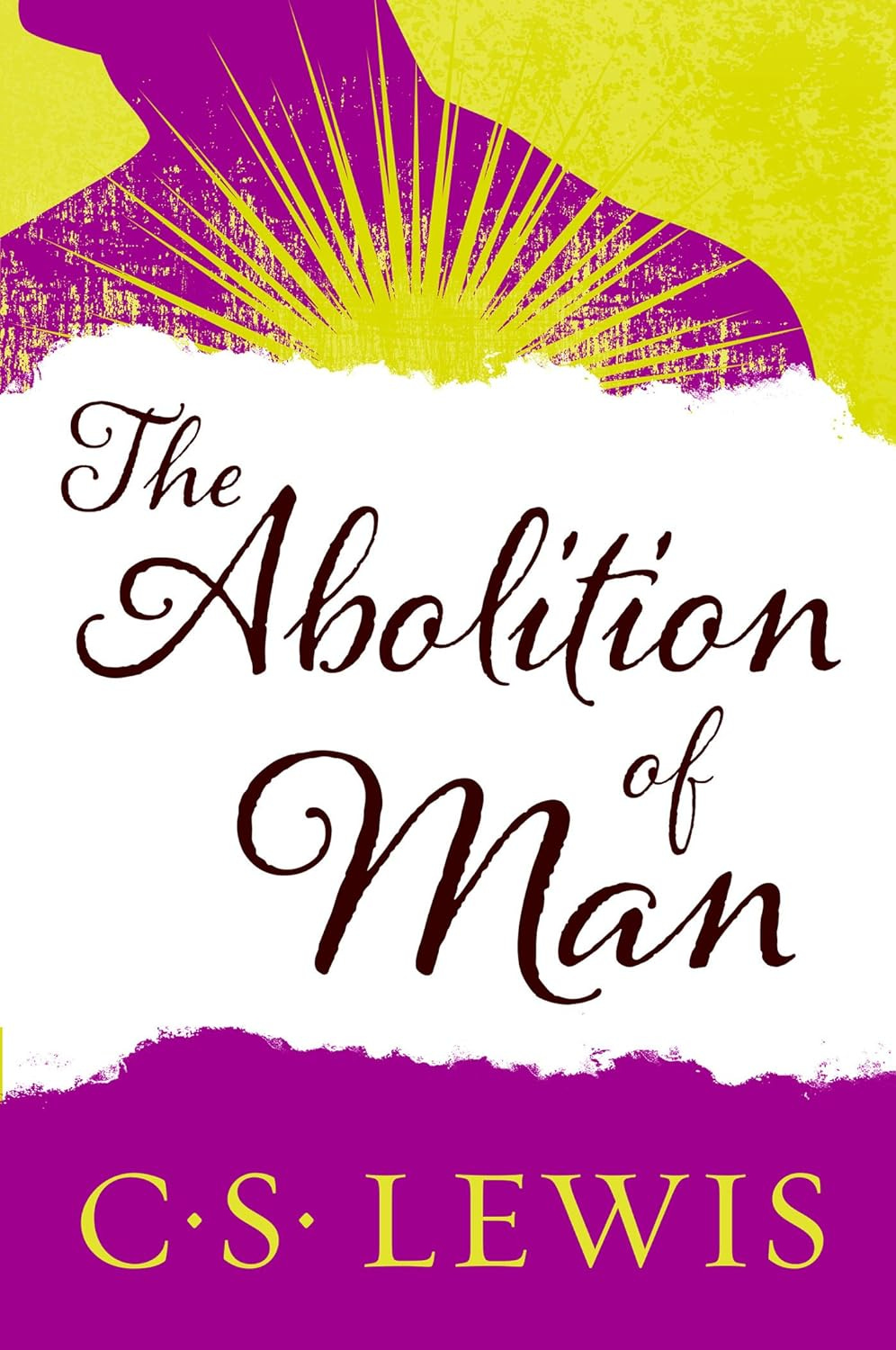Remember to add your book recommendations in the comments below.
Today’s book is:
The Abolition of Man by C. S. Lewis
In many ways C. S. Lewis predicted the future. “He foresaw the rise of trends we’re currently experiencing: ethical emotivism, the sometimes unquestioned authority of science, and the increasing use of technology by states to control their populations.” –The Gospel Coalition, Joseph A. Kohm Jr.
The Abolition of Man discusses why we shouldn’t always listen to only reason and cut out our emotions. Lewis argues that reason without emotion there is not a reality. He debunks arguments that the purist form of reason is instinct, that benevolent actions will be found through pursuing science, and that science will be the best moral compass for mankind to follow. Lewis proves that moral absolutes do exist and they are universal throughout all of time.
This is a book for C. S. Lewis fans and anyone who wants to better understand traditional moral virtues and how they impact your life. Lewis said, “If nothing is self-evident then nothing can be proved.” There must be self-evident truths that can be applied everywhere. The book brings together a series of lectures on education that Lewis delivered over three nights at the University of Durham.
You can buy the book here (Amazon link).





I've read this book several times, along with most of his other nonfiction books. He is correct in warning us that if science will determine the moral compass, we are doomed. Who gets to determine what science is? Will it be the likes of "I am the Science?" Of course it will be, along with the technocrats and tyrants of all sorts, of high and low power, bullies at every social level.
They will decide what science is and what "ethics" and morals are, often leaning on the useful hand washing tool that AI is already serving. Remember Pontius Pilate washing his hands and rhetorically asking what is truth? Oh, so convenient as truth and ethics/morals will be everchanging (as we have seen of recent years, if we have eyes to see and ears to hear) and finicky in order to serve a current requirement.
I just got a memoir by someone who lived through Mao's famine, and I've been recommending the many memoirs by Chinese immigrants who were Red Guards during the Cultural Revolution, written later, filled with regret, but that made me think of a book for you, which I haven't read yet, but have heard interviews with the author. Mao's America by Xi Van Fleet. She lived through the Cultural Revolution, immigrated, became an educator, and then saw the same patterns here that had happened in China. She's on X.